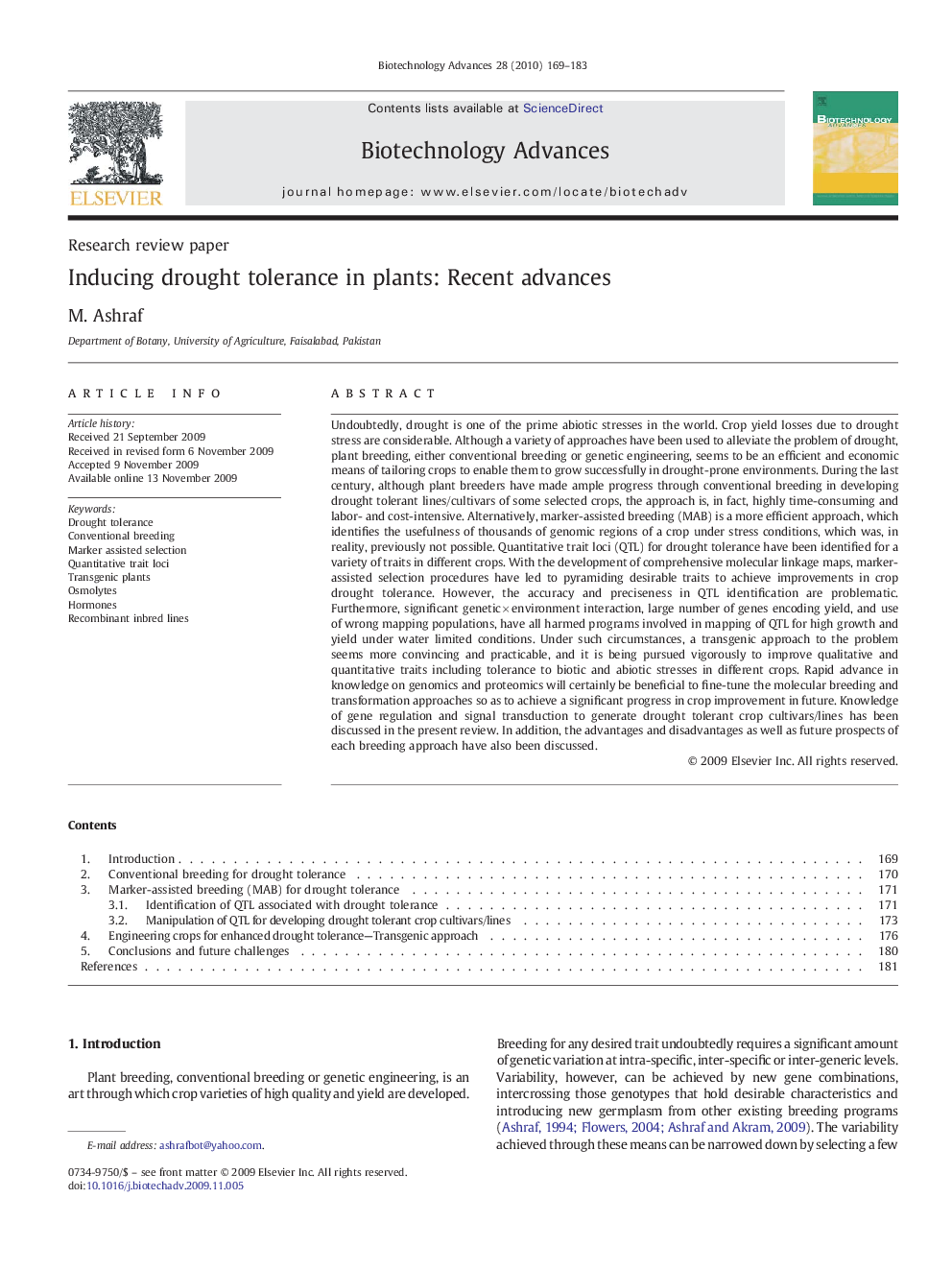| Article ID | Journal | Published Year | Pages | File Type |
|---|---|---|---|---|
| 14769 | Biotechnology Advances | 2010 | 15 Pages |
Undoubtedly, drought is one of the prime abiotic stresses in the world. Crop yield losses due to drought stress are considerable. Although a variety of approaches have been used to alleviate the problem of drought, plant breeding, either conventional breeding or genetic engineering, seems to be an efficient and economic means of tailoring crops to enable them to grow successfully in drought-prone environments. During the last century, although plant breeders have made ample progress through conventional breeding in developing drought tolerant lines/cultivars of some selected crops, the approach is, in fact, highly time-consuming and labor- and cost-intensive. Alternatively, marker-assisted breeding (MAB) is a more efficient approach, which identifies the usefulness of thousands of genomic regions of a crop under stress conditions, which was, in reality, previously not possible. Quantitative trait loci (QTL) for drought tolerance have been identified for a variety of traits in different crops. With the development of comprehensive molecular linkage maps, marker-assisted selection procedures have led to pyramiding desirable traits to achieve improvements in crop drought tolerance. However, the accuracy and preciseness in QTL identification are problematic. Furthermore, significant genetic × environment interaction, large number of genes encoding yield, and use of wrong mapping populations, have all harmed programs involved in mapping of QTL for high growth and yield under water limited conditions. Under such circumstances, a transgenic approach to the problem seems more convincing and practicable, and it is being pursued vigorously to improve qualitative and quantitative traits including tolerance to biotic and abiotic stresses in different crops. Rapid advance in knowledge on genomics and proteomics will certainly be beneficial to fine-tune the molecular breeding and transformation approaches so as to achieve a significant progress in crop improvement in future. Knowledge of gene regulation and signal transduction to generate drought tolerant crop cultivars/lines has been discussed in the present review. In addition, the advantages and disadvantages as well as future prospects of each breeding approach have also been discussed.
